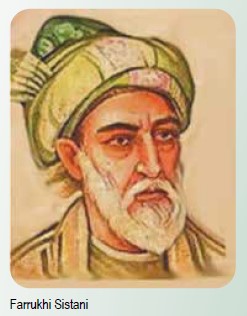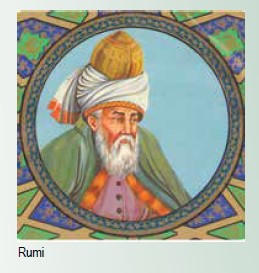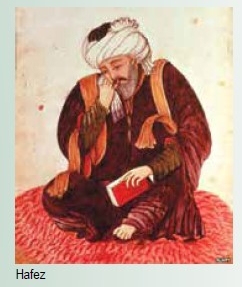
By John Lewis and Stuart Gaffney–
Oh boy, if you want to cheer my heart,
You must give me kisses after serving me the wine.
So reads a couplet from the 10–11th century Persian poet Farrukhi Sistaní giving voice to same-sex love. Farrukhi, a Persian literary luminary who lived in what is now Afghanistan, was not alone in writing about queer love. The famous 13th century poet Rumi, whose poetry enjoys enormous popularity in America today and whose family was from what is now Afghanistan, was also inspired by same-sex love. He wrote:

If anyone asks you,
how the perfect satisfaction
of all our sexual wanting will look,
lift your face and say,
Like this.
And Rumi’s poetry connects human love to personal liberation and the divine:
Soul, if you want to learn secrets,
your heart must forget about shame and dignity.
You are God’s lover,
yet you worry what people are saying.
Queer life and love in present-day Persia is far different than it was 800 or more years ago. It is heart-wrenching that Iran, Afghanistan, and Pakistan are three of eleven countries in the world today in which physical expression of same-sex love may be punishable by death. Today, poets like Farrukhi or Rumi might be hanged or stoned to death.

Six countries—Iran, Saudi Arabia, Yemen, Mauritania, Brunei, and the 12 Northern states of Nigeria—legally prescribe capital punishment as a penalty for same-sex sexual conduct, according to a 2020 report from ILGA World (International Lesbian, Gay, Bisexual, Trans and Intersex Association). ILGA sources report that the death penalty may be imposed in five other countries, although there is less legal certainty about the punishment. Those five countries are: Afghanistan, Pakistan, Qatar, Somalia, and the United Arab Emirates.
Needless to say, these laws have a devastating effect on queer people in these countries. Ali Khoie, an Iranian LGBTIQ refugee now living in the U.S., described it this way at a 2015 event sponsored by ORAM (Organization for Refuge, Asylum and Migration):
“Imagine if you are in a closet with the doors closed. It’s dark in there. You are all alone and sometimes you are so far into the darkness you don’t even know your own self.”
Getting lost in despair is easy in the face of these conditions. Khoie was able to flee Iran and find freedom, which he described as “coming to a place where the doors are thrown wide open and the light comes in.” But he also described how adjusting to such sudden change can be difficult. Indeed, leaving one’s home can be traumatic, and LGBTQ refugees may face racial discrimination in their new host countries. And, of course, very few LGBTIQ people are able to escape.
Amidst the darkness, we find hope in the prophecy of another ancient Persian poet, Hafez, who wrote:
It happens all the time in heaven,
And some day, it will begin to happen again on earth
That men and women who are married,
And men and men who are Lovers,
And women and women who give each other Light,
Often get down on their knees
And while so tenderly holding their lover’s hand,
With tears in their eyes, will sincerely speak, saying:
“My dear,
How can I be more loving to you;
How can I be more kind?”

Hafez envisions not just a pair of lovers being more kind to each other, but for all people to extend this kindness to the world as their beloved. Nonprofit organizations such as ILGA World, ORAM, and Rainbow Railroad are doing just that for LGBTIQ people in need across the globe.
We must ask the leaders of the eleven countries with the death penalty for homosexuality and the approximately 60 other countries that still criminalize being LGBTQ, when will they do the same? Indeed, what would happen if we all awakened each morning and asked ourselves Hafez’s query: “How can I be more kind?”
English translations of poetry from:
https://tinyurl.com/2p928hhe
The Essential Rumi (HarperOne 2004)
https://www.rumi.org.uk
The Subject Tonight is Love (Pumpkin House Press, 1996) https://tinyurl.com/2p9hkz26
https://tinyurl.com/yc8x655y
John Lewis and Stuart Gaffney, together for over three decades, were plaintiffs in the California case for equal marriage rights decided by the California Supreme Court in 2008. Their leadership in the grassroots organization Marriage Equality USA contributed in 2015 to making same-sex marriage legal nationwide.
Published on February 24, 2022
Recent Comments